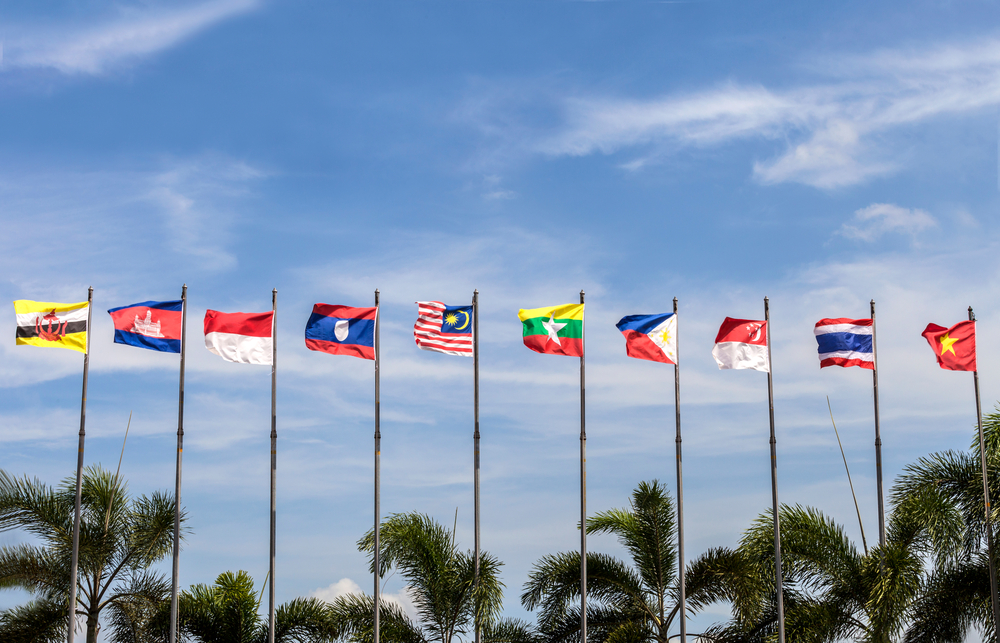Asian Countries Take Pride in Economic Integration Achievements While Dealing the Past

Please note that we are not authorised to provide any investment advice. The content on this page is for information purposes only.
The 70th anniversary of the end of the World War II offers an opportunity for Northeast Asia to reflect on the lessons learnt from the past and to forge a vision for a peaceful and prosperous future.
The Northeast Asian countries should encourage domestic debate on the facts of history and their moral implications for today. Each nation has its own unique historical experiences that influence reflections on the past, and create heroes and villains in the present. Only free and open discussion of interpretations can give people a full and nuanced understanding of their history.
The 70th anniversary of the end of the World War II offers an opportunity for Northeast Asia to reflect on the lessons learnt from the past and to forge a vision for a peaceful and prosperous future.
The Northeast Asian countries should encourage domestic debate on the facts of history and their moral implications for today. Each nation has its own unique historical experiences that influence reflections on the past, and create heroes and villains in the present. Only free and open discussion of interpretations can give people a full and nuanced understanding of their history.
Some revelations — such as the ‘comfort women’ issue — are likely to expose complex legal consequences, demand difficult political choices and raise uncomfortable moral questions for contemporary leaders. However, any attempt to conceal the facts of history or deflect moral responsibility for past events will only delay the necessary reconciliation within and between Northeast Asian countries.
Any country’s attempt to influence the history discourse in its neighbours, even if well intended, will be hazardous and counterproductive. The best that each nation can do is to share its understanding of its own history with its neighbours through bilateral and multilateral dialogue. No country needs to feel slighted, dishonoured or threatened during these conversations.
Tensions also rise from the many territorial disputes in the region. The disputes directly and immediately affect states’ sovereignty claims and may compromise the political credibility of contemporary leaders. While the disputes have an economic element, the symbolic and sentimental values that they represent are arguably more important. If one country’s prospects of recovering ‘lost territories’ are dashed because of their neighbour’s intransigence, or through brute force, this could fuel a sense of injustice.
Political leaders need to approach such disputes pragmatically and place them in a broader framework of international relations. They should consider ‘shelving’ territorial claims in favour of cooperative behaviour. Countries could jointly develop natural resources, establish an ecological park or conduct joint scientific research on and around disputed islands. However, they should first declare the non-use of force and demilitarise the disputed areas, thereby reducing tensions and preventing accidental clashes.
Japanese leaders should also refrain from visiting Yasukuni Shrine while they are in office. As long as they are holding public office, the claim that visits to the shrine are ‘private affairs’ is simply not credible. Instead, the Japanese government should pay respects to the war dead at a public, non-religious facility.
Such services could also include prayers for non-Japanese who have suffered under Japanese imperialism and militarism. This way, they could provide an opportunity for Japanese leaders to offer public apologies, express their remorse and demonstrate their atonement for the nation’s past deeds. They could also appeal to the universal yearning for peace. At the same time, South Korean and Chinese leaders should accept any sincere remorse, contrition and apologies by Japanese leaders in such a venue for what they are.
If past records are any indication of the likely reaction of Japan’s neighbours, expressions of atonement and offers of apologies by Japanese political leaders are probably not enough to gain the trust of their neighbours. Japan should engage actively in trust- and confidence-building efforts with its neighbours. Northeast Asia has much to learn from the successful experience of postwar Germany and Europe. This is often invoked when discussing Japan’s reconciliation — or lack thereof — with its neighbours.
Northeast Asia should also look to the example of reconciliation and cooperation in Southeast Asia. Once a conflict-ridden region, the ASEAN region is now on its way to becoming an economic community. ASEAN’s efforts to build mutual confidence since its establishment in 1967 have paid substantial peace dividends. ASEAN serves as the core institution upon which layers of multilateral cooperation have been built. Although there are doubts about its effectiveness, there is no question that the ASEAN-centred multilateral dialogue has been instrumental in building confidence, preventing conflict and expanding economic ties among the Southeast Asian countries and beyond.
Northeast Asian countries should take pride in the depth of economic integration they have achieved through their trade and investment activities. They have accomplished this feat without the top-down, politically guided regional scheme seen in Europe. Instead, market forces driven by corporate initiatives and individual entrepreneurship have guided integration. The resulting economic development and transnational economic linkages have fostered civil society development as well as cross-national social and cultural contacts.
Northeast Asian leaders should further nurture these developments. They need to make further progress on regional economic cooperation, by establishing bilateral and multilateral trade and investment regimes to accelerate the process of regional economic integration. If they continue to work together, Northeast Asian leaders can realise their hopes for the region’s future.
Northeast Asia must cast off the shackles of history is republished with permission from East Asia Forum




